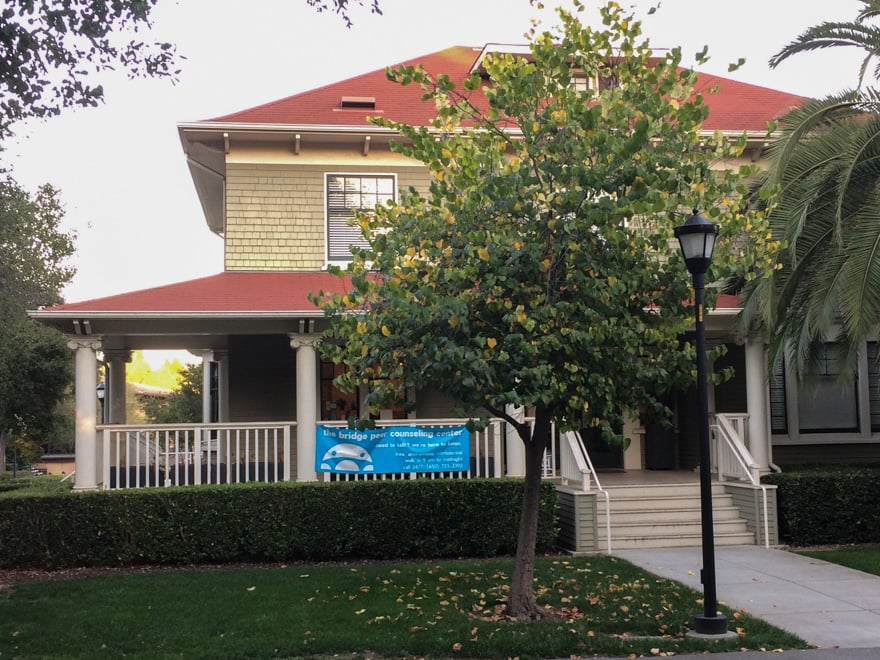Content warning: mental illness, hospitalization
Dear Stanford Community,
Yesterday, The Daily announced the Associated Students of Stanford University’s (ASSU) work with the Student Affairs office regarding changes to the 5150 policy, which is in place to protect people’s mental health in emergency situations. This is a change many mental health advocates (including ASSU presidents and vice presidents) have been working toward for years. In the past, students placed under 5150 holds would be handcuffed, escorted out of CAPS and transported in the backs of police cars. This experience can be traumatizing and heightens feelings of fear during the hospitalization process. With the new policy, Emergency Medical Services (EMS) will be first responders to these situations instead. We hope that this new plan will help students feel more comfortable promoting their well-being, since seeking mental health support exhibits incredible bravery.
Communicating policy changes with transparency is one of our priorities. We hope that by sharing this news, along with Student Affairs’ letter to us below, we can uphold these values. We want you to understand how much progress this means for students, and — though there’s still progress to be made — student engagement and advocacy can bring about positive change. We are thankful for all the student and administrative labor that went into making this change a reality, and encourage others to continue working towards the change they want to see on campus. Though realizing a vision of a better, more inclusive Stanford can take time — years and decades, even — we know incremental change can inspire long-term impact for future Stanford students.
At the same time, we recognize that ambulance costs can still deter students from seeking proper treatment. The note from Susie and Bina (again, included below) indicates that financial support will be provided. We intend to work with Student Affairs to clearly communicate the process surrounding this. Affordability should not be a barrier to keeping students safe.
Thank you for allowing us to represent you. We will continue working toward a better, safer, more comfortable environment for everyone. We are hosting a Q&A session with VPSA and CAPS next week to address your questions and concerns. If you’d like more details as they become available, please sign up here.
With love,
Vianna Vo, ASSU President
Chris Middleton, ASSU Vice President
Jianna So, Chief of Staff
Cricket X. Bidleman, Director of Communications
Dear ASSU Executive leadership,
We are writing today to follow up on our conversation last week. We are deeply appreciative of our collaborative working relationship, and we are grateful to partner with you on discussing different options for transporting students who are experiencing a mental health crisis from campus to a hospital. We also want to express our gratitude to the many students in and outside of the ASSU who have been committed to raising this issue and addressing this challenge. We are writing to follow-up on our progress and to describe our next steps.
The need to transport an individual to an emergency room for further evaluation (commonly referred to in California as a 5150 hold) is an acute and critical incident. In California, by law, the only persons who can place an individual on a 5150 protective hold are peace officers and certain mental health and medical professionals.
In our past practice, a student would be evaluated by a police officer or a mental health and/or medical professional, and then transported to an emergency room by the Stanford University Department of Public Safety (DPS). We’ve been actively working to find new options to help support students through what is a challenging time. Moving forward, and effective immediately, DPS will respond, but most transports to a hospital for a protective 5150 hold will be provided by an ambulance, generally from the Palo Alto Fire Department.
As with any transport by ambulance, there is a fee. We believe that in most cases, students’ health insurance will cover this fee minus any out-of-pocket, required premiums or co-pays. We do not want fees to deter people from seeking care or calling for assistance when someone is in distress. Please know that we will work with students who have serious financial concerns so that the ambulance payment is not a deterrent to receiving care.
We are evaluating additional alternatives — such as a multi-disciplinary mobile crisis team — for addressing student mental health concerns on campus. These opportunities will take more time to develop and will require the identification of additional resources. We look forward to our continued discussions on these topics.
Thank you for elevating this to a top priority to be addressed early in this academic year. We see this as a great deal of progress in a short period of time. Please keep in touch with us on any other concerns that may arise as we change this practice. We look forward to continuing discussions with you on how we can best respond to students and their wide range of mental health needs.
Sincerely,
Susie and Bina
Susie Brubaker-Cole, Vice Provost for Student Affairs
Bina Pulkit Patel, Director, Counseling and Psychological Services
Contact Vianna Vo at viannavo ‘at’ assu.stanford.edu, Chris Middleton at cmiddle ‘at’ stanford.edu, Jianna So at jiannaso ‘at’ assu.stanford.edu, and Cricket X. Bidleman at bidleman ‘at’ stanford.edu.
The Daily is committed to publishing a diversity of op-eds and letters to the editor. We’d love to hear your thoughts. Email letters to the editor to eic ‘at’ stanforddaily.com and op-ed submissions to opinions ‘at’ stanforddaily.com.
